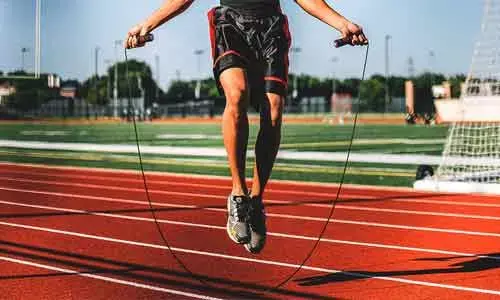- Home
- Medical news & Guidelines
- Anesthesiology
- Cardiology and CTVS
- Critical Care
- Dentistry
- Dermatology
- Diabetes and Endocrinology
- ENT
- Gastroenterology
- Medicine
- Nephrology
- Neurology
- Obstretics-Gynaecology
- Oncology
- Ophthalmology
- Orthopaedics
- Pediatrics-Neonatology
- Psychiatry
- Pulmonology
- Radiology
- Surgery
- Urology
- Laboratory Medicine
- Diet
- Nursing
- Paramedical
- Physiotherapy
- Health news
- Fact Check
- Bone Health Fact Check
- Brain Health Fact Check
- Cancer Related Fact Check
- Child Care Fact Check
- Dental and oral health fact check
- Diabetes and metabolic health fact check
- Diet and Nutrition Fact Check
- Eye and ENT Care Fact Check
- Fitness fact check
- Gut health fact check
- Heart health fact check
- Kidney health fact check
- Medical education fact check
- Men's health fact check
- Respiratory fact check
- Skin and hair care fact check
- Vaccine and Immunization fact check
- Women's health fact check
- AYUSH
- State News
- Andaman and Nicobar Islands
- Andhra Pradesh
- Arunachal Pradesh
- Assam
- Bihar
- Chandigarh
- Chattisgarh
- Dadra and Nagar Haveli
- Daman and Diu
- Delhi
- Goa
- Gujarat
- Haryana
- Himachal Pradesh
- Jammu & Kashmir
- Jharkhand
- Karnataka
- Kerala
- Ladakh
- Lakshadweep
- Madhya Pradesh
- Maharashtra
- Manipur
- Meghalaya
- Mizoram
- Nagaland
- Odisha
- Puducherry
- Punjab
- Rajasthan
- Sikkim
- Tamil Nadu
- Telangana
- Tripura
- Uttar Pradesh
- Uttrakhand
- West Bengal
- Medical Education
- Industry
Exercising women may ward off menstrual disorders by consuming extra calories

WASHINGTON--Researchers have found that exercising women who struggle to consume enough calories and have menstrual disorders can simply increase their food intake to recover their menstrual cycle.The study has been accepted for presentation at ENDO 2020, the Endocrine Society's annual meeting, and publication in the Journal of the Endocrine Society.
The study found that exercising women with menstrual disorders can start menstruating again by consuming an additional 300-400 calories a day.
"These findings can impact all exercising women, because many women strive to exercise for competitive and health-related reasons but may not be getting enough calories to support their exercise," said lead researcher Mary Jane De Souza, Ph.D., of Penn State University.
By consuming enough calories, exercising women with menstrual disorders can avoid complications associated with a condition known as the Female Athlete Triad, De Souza said. This is a medical condition that starts with inadequate food intake that fails to meet the body's needs. It leads to menstrual disorders and poor bone health. It is associated with a high incidence of stress fractures.
The study included 62 young, exercising women with infrequent menstrual periods. Thirty-two women increased their calorie intake an average of 300-400 calories a day, and 30 maintained their exercise and eating habits for the 12-month study. Women who consumed the extra calories were twice as likely to have their menstrual period during the study compared with the women who maintained their regular exercise and eating routine.
"This strategy is easy to implement with the help of a nutritionist. It does not require a prescription and avoids complications from drug therapy," De Souza said. "The findings will encourage healthcare providers to try to help exercising women with menstrual disorders who consume too few calories to eat more, and this may help them to be healthier athletes and avoid bone complications."
Hina Zahid Joined Medical Dialogue in 2017 with a passion to work as a Reporter. She coordinates with various national and international journals and association and covers all the stories related to Medical guidelines, Medical Journals, rare medical surgeries as well as all the updates in the medical field. Email: editorial@medicaldialogues.in. Contact no. 011-43720751
Dr Kamal Kant Kohli-MBBS, DTCD- a chest specialist with more than 30 years of practice and a flair for writing clinical articles, Dr Kamal Kant Kohli joined Medical Dialogues as a Chief Editor of Medical News. Besides writing articles, as an editor, he proofreads and verifies all the medical content published on Medical Dialogues including those coming from journals, studies,medical conferences,guidelines etc. Email: drkohli@medicaldialogues.in. Contact no. 011-43720751


